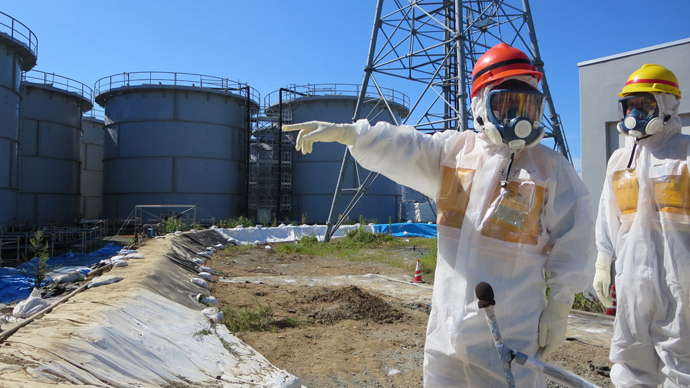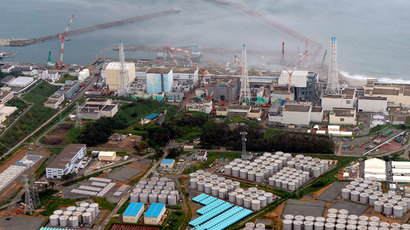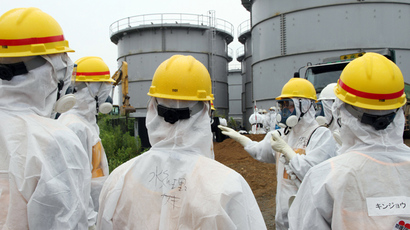Fukushima tritium levels spike 15-fold in three days

In just three days, readings of tritium in groundwater near the wrecked Fukushima nuclear plant have soared more than 15 times, the operator of the crippled Fukushima nuclear plant admitted.
Results of recently tested water taken from the well some 20
meters south from a number of storage tanks have showed that
levels of tritium have now reached 64,000 becquerels per liter.
Back on September 9, the level of tritium – a potentially
dangerous radioactive isotope – from the same location stood at
29,000 compared to 4,200 becquerels per liter on Sunday.
On Monday a new hotspot of radiation was detected in groundwater
from an observation well next to a faulty water storage tank.
Some 3,200 becquerels per liter of radioactive substances were
recorded in the well.

Prior to that the company announced the discovery of 650
becquerels per liter of radioactive waste in another well,
located about 20 meters south of the storage tank.
TEPCO said in the recent press-release it will continue
monitoring the situation and will keep investigating the
“leakage range”.
Last month TEPCO reported 300 tonnes of highly contaminated
groundwater seeping into the Pacific Ocean daily.
Meanwhile, September, 11 marks two-and-a half years since triple
meltdowns, caused by an earthquake and tsunami in March 2011.
With a crisis over radiation-contaminated water at the plant,
Tepco Electric has been criticized for its ad hoc response to the
disaster.
As Tokyo beat Madrid and Istanbul to host the 2020 Olympics,
Prime Minister Shinzo Abe said he would be personally responsible
for a plan to cope with the consequences.














